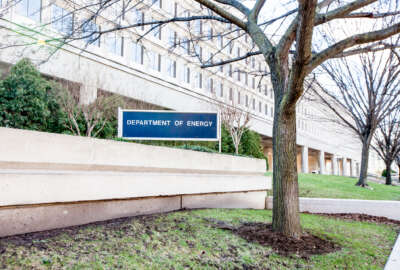DoD experts: civilian agencies critical to national security
The changes under way at the Pentagon under the direction of Defense Secretary Robert Gates are in part bourne out of the fiscal reality the country is facing...
wfedstaff | June 3, 2015 7:03 pm
The changes under way at the Pentagon under the direction of Defense Secretary Robert Gates are in part bourne out of the fiscal reality the country is facing today. But there is an underlying element of resistance to change in the wake of the end of the Cold War that affects the way DoD will move forward and reshape itself for the 21st century.
In February the Pentagon released its Quadrennial Defense Review, a document DoD says “will set a long-term course for DoD as it assesses the threats and challenges that the nation faces and re-balances DoD’s strategies, capabilities, and forces to address today’s conflicts and tomorrow’s threats.”
Following the release of the QDR, Secretary Gates and Congress, according to The Institute of Peace, “constituted an independent panel to review the report as part of the National Defense Authorization Act of 2010. Former Secretary of Defense William J. Perry and former National Security Adviser Stephen J. Hadley served as co-chairs on the Panel, and the Department of Defense asked the U.S. Institute of Peace to facilitate the Panel’s work. On July 29, 2010, the Panel delivered its final report to Congress.”
I featured highlights of Mr. Hadley and Secretary Perry before the House Armed Services Committee on In Depth back in August, and today, I welcomed Mr. Hadley, and panel member Dr. John Nagl, President of the Center for a New American Security, to a special two-hour Pentagon Solutions to talk about the work that went into the panel’s report, response to the work of the panel in the six months since the report’s release, and how events both inside and outside the Pentagon have comported with the report’s recommendations.
The first job was to determine a starting point. “We tried to see if we could articulate from the Presidential guidance that had been given, what was the grand strategy of the United States,” Mr. Hadley told me. “What we found was the diversity of security challenges looking forward is so large, and the range is so great, that no Presidential administration since the end of the Cold War has been able to write a national strategy document that, over the course of time, seemed to have held up. If you look back at what Presidents have done, particularly with our military forces, we could identify some enduring interests that the United States has had, both during and after the Cold War period.”
Mr. Hadley’s co-chair, former Defense Secretary William Perry, set out several very specific goals for the panel. “Bill Perry said we had to be not just bipartisan but nonpartisan,” Dr. Nagl told me. “Bill also said we had to be unanimous. With that sort of attitude from the start, Bill thought the impact of the report would be magnified dramatically if we had a unanimous decision.”
On the whole, the issues the panel found were not with the Pentagon itself. “We applauded the moves of the Department of Defense to rebuild itself – to transform itself – for the 21st century Xxbecause ofXX the irregular threats it was going to face, the rise of China,” said Dr. Nagl. “We argue that the civilian elements of government were moving in the right direction but needed more resources, and we provided some ideas for that.”
“The big agency of the Federal government that hasn’t transformed itself, that really needs to, we thought, is the United States Congress,” Dr. Nagl said. “We recommend that the Congress take a hard look at itself, and how it structures itself for the national security threats we face in this century.”
The Pentagon does have goals to meet, according the findings of the panel. “There’s more work to be done about reforming the military personnel system, and the educational system,” Mr. Hadley told me. “There are things we can do on acquisition reform, to make it more effective and more cost-effective. We also need a new national security strategic planning process that really looks at the whole of government challenges, and provides a basis for coordinating actions without the government.”
And Mr. Hadley said a broader theme emerged as Mr. Hadley, his co-chair Sec. Perry, and the members of the panel did their work. “We need to redefine national security. National security is not just about the Department of Defense. These civilian capabilities…are part of the national security resources of the country. We need to look at national security as involving State, DoD, AID, Homeland Security, and our intelligence agencies, and to treat it as a package in our planning, and in how our Congress deals with these issues on Capitol Hill.”
You can hear my entire conversation with Mr. Hadley and Dr. Nagl by clicking on the audio links.
Copyright © 2025 Federal News Network. All rights reserved. This website is not intended for users located within the European Economic Area.





